UPDATED FOR 2021! I often talk to clients and friends about Italian films. Watching films in Italian is a great way to listen to the sound and cadence of the language as it is actually spoken – and of course subtitles can help dramatically too! The Italians had such a miserable time during the Second World War that, as soon as hostilities were over, the Italian film industry blossomed. Often with whimsical tales of hope, kindness and imagination. Anything to escape the grinding poverty of so many of the Italian people during the war years.
LADRI DI BICICLETTE – The film ‘The Bicycle Thieves’ was released in 1948, in the ‘neorealista’ style. It portrays a poor family, struggling to survive. The father finally gets a job only to have his bicycle stolen by thieves. The father and his son work together to try and find the bike. It’s a film that stays with you for years. A film about ordinary people, every day challenges and the grim reality of life in Italy just after the war. It’s a poignant tale of humanity. Beautifully filmed and so touching. A film that I’ll never forget.
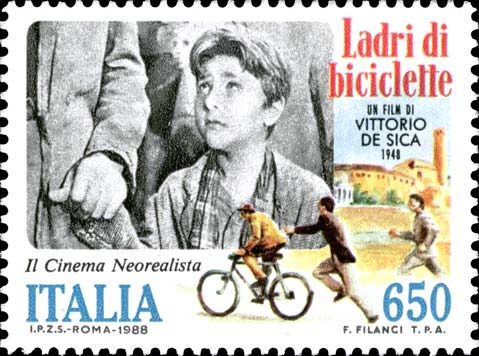
For my next choice, the cinema itself is the star…..
CINEMA PARADISO – this is a beautiful film about Toto (Salvatore) a young boy growing up in a remote Sicilian village. The boy lives with his mother and sister, the father is absent, away fighting in a far off war. A friendship develops between Toto and Alfredo, the projectionist at the local cinema. Alfredo is a father figure to the boy. There is a special bond between the two that endures throughout their lives.
The cinema offers entertainment and escapism to the local people. The film screenings are very popular and attract full houses. Sometimes there are so many people that members of the audience have to bring their own chair to sit on. The interaction between the spectators in the cinema is hilarious. Every social class is represented in the cinema, from the mayor of the town to the street cleaner. They are all there packed into one building with the common goal of watching the latest movie. Of course there’s always a few courting couples in the back row who are not there to watch the film.
The local priest takes his job of censoring the films, before they are seen by the locals, very seriously. He insists that Alfredo removes every scene of kissing or any form of physical intimacy from every film. His sense of moral outrage, as he watches the films, possibly a little too intently, is very funny. Toto grows up against a backdrop of the great movies of the 1940s and 1950s. Cowboy films with John Wayne and huge epic movies like Gone with the Wind. The cinema is the only entertainment in the village. Everyone goes there, rich and poor, men and women, even the children. It introduces drama and high adventure into the lives of the villagers. Alfredo as the projectionist has a crucial role in showing the latest films to the town. If he makes a mistake, or there’s a delay changing film reels, booing and hissing fills the air.
It’s a wonderful, epic and meaningful film that spans Toto’s entire life. The musical score is fantastic too. A beautiful and poignant evocation of rural, village life in Sicily just after the war. It’ll make you laugh, cry and want to visit Sicily – all at once!
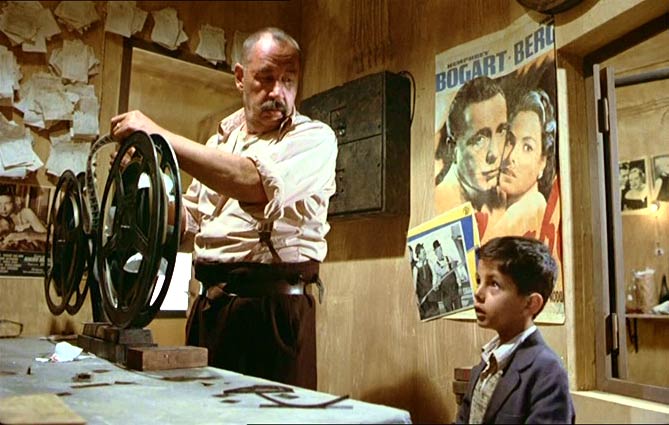
Continuing the theme of escapism, I’m going to move now from cinema and film to poetry and to the beautiful and atmospheric film Il Postino, released in 1994.
IL POSTINO is set in the 1950s on a remote island off the coast of Italy. The film is about a young man who is a fisherman, following reluctantly in his father’s footsteps. However he’s not a very good fisherman and he doesn’t like the work. His father urges him to find another job. By chance the local post office are advertising for a postman to deliver letters to a remote house in the hills. The pay is poor and the post man must deliver to only one house. Mario, our hero takes the job. It turns out that he is delivering sacks full of letters to the poet Pablo Neruda. He has been forced to leave his native Chile because of his communist sympathies. Neruda is already a very successful romantic poet and has a huge and loyal female fan base, writing him love letters from all over the world. Mario is fascinated and very impressed with Neruda’s female following and wants to know how he too can get the attention of women…………..
Over time a friendship develops between Mario and Pablo Neruda. Mario seeks the poet’s advice on how he can attract the beautiful Beatrice who works in a small bar by the harbour. The film is a charming and romantic voyage of discovery, where words are powerful and life changing. When asked by Neruda for an adjective to describe the fishermen’s nets piled up on the jetty, Mario pronounces the nets to be sad. ‘Le rete sono triste!’
After several years in exile Pablo Neruda is able to return to his homeland. The postman doesn’t hear from the ‘great man’ again. Which causes him profound disappointment. However like all good films, it’s worth watching until the very end. For me this film is uplifting and reveals the possibilities available to everyone, whatever their situation in life. I discovered after seeing the film that Mario, Il Postino, was actually ill during the making of the film and died shortly afterwards. How’s that for a poignant epitaph.
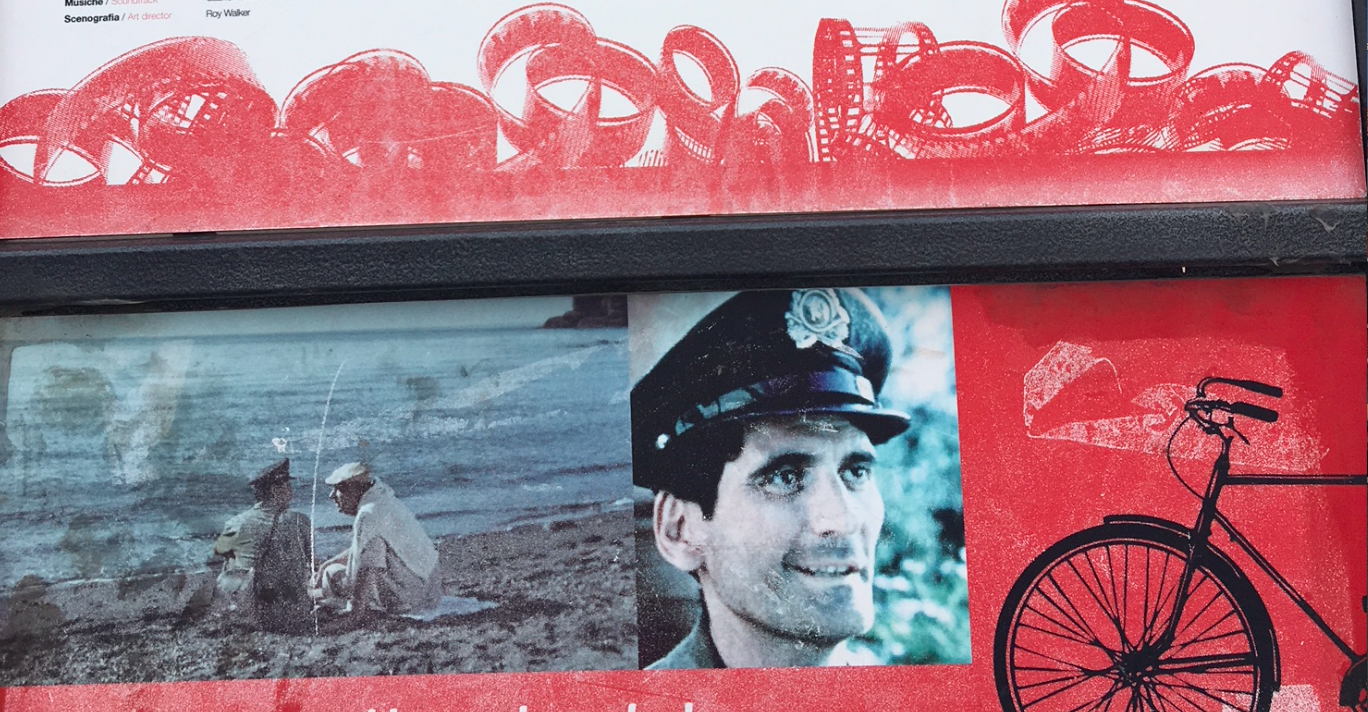
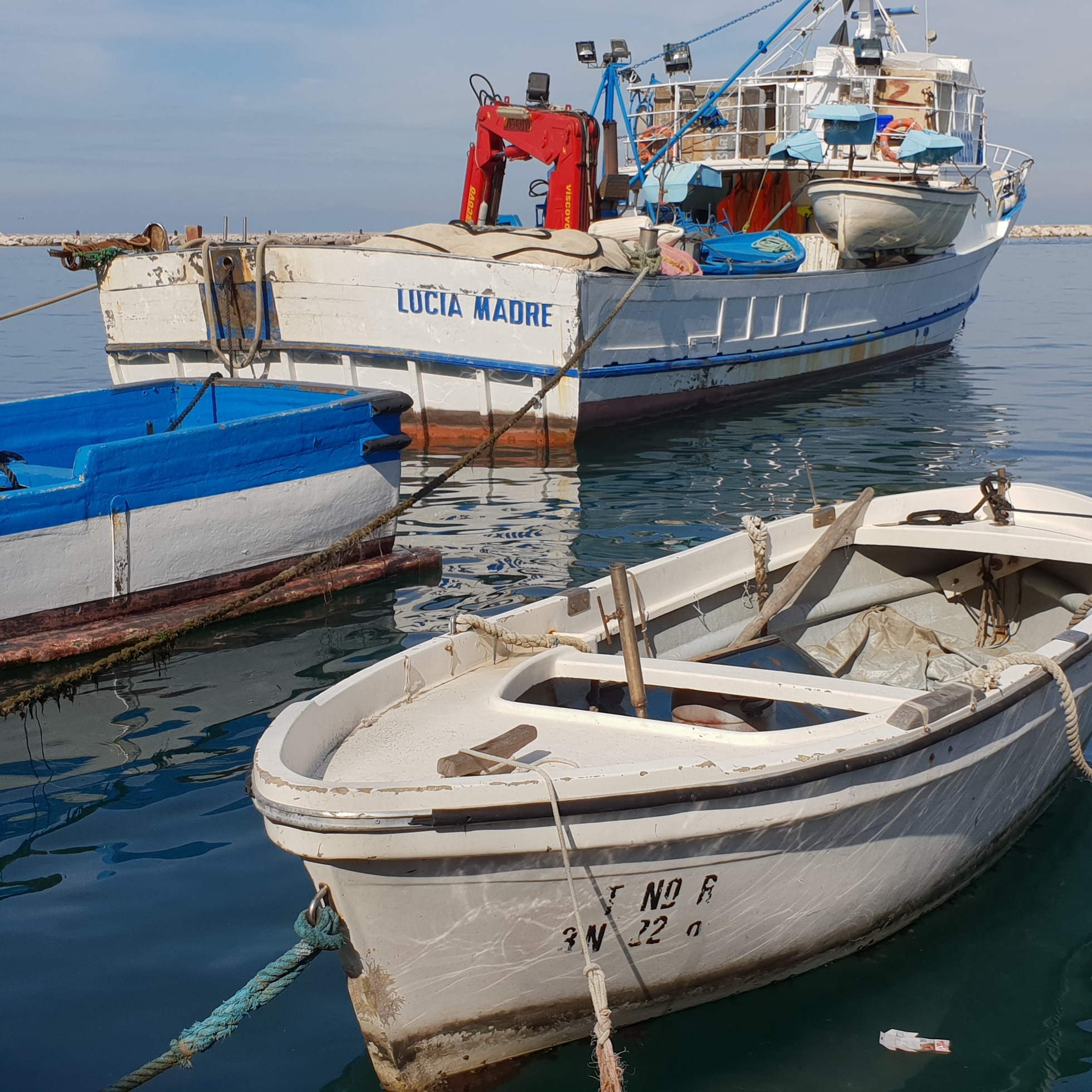
I’m going to finish my Italian film selection with an absolute masterpiece from the 1960s. It’s a dark comedy called ‘Divorce Italian Style’. This is a brilliant and very funny film starring Marcello Mastroianni.
DIVORCE ITALIAN STYLE – is a dark comedy about a handsome and rather vain young aristocrat who is desperate to marry his cousin Angela. Unfortunately he is already married and divorce is illegal in Italy at the time of the film. Undeterred the main character imagines all sorts of fatal endings for his unfortunate wife. Eventually he develops a plan to trick his wife into having an affair. However things don’t work out quite as he is expecting. Mastroianni is brilliant as the self-obsessed, arrogant and curiously, completely clueless lead character. This film is endearing, amusing and a great way to spend a Sunday afternoon.
Happy film viewing, there’ll be more suggestions to come soon!

A BRAND NEW RELEASE – ISOLE DELLE ROSE – December, 2020 – a charming and actually quite inspirational film about an engineer who dreams of creating his own kingdom. Based on the true story of Giorgio Rosa from Bologna, this quirky and endearing film follows the dream of a scientist determined to create his own personal domain, where outside rules and government laws cannot intervene. Aided and assisted by his fellow student and amateur alcoholic Maurizio, the son of a Rimini hotel owner. The pair set out to create a steel platform ‘isola d’accaio’ a steel island, off the coast of Italy just outside Italian territorial waters. The kingdom attracts an assortment of misfits and party goers. They even employ a professional bartender and large quantities of ‘Cynar’ an Italian aperitivo are consumed. The Isola delle Rose lasts just 55 days, even though it has adopted it’s own official language ‘Esperanto’ which none of the main characters speak. They’d even commissioned some stamps. This film is strongly recommended to brighten your winter evenings. There’s a trailer below to inspire and encourage you! Enjoy……..
Happy viewing and remember that dreaming is free – always!!
Notes:
- Isola delle Rose (2020 film) – trailer: https://youtu.be/I_bl2Dyu5Ig
- Short 1960s film about the real ‘Isola delle Rose’: https://youtu.be/XKTxTNaqgzE
- For more on Italian movies you may enjoy another article I wrote: Sicily in the Movies
- I’ve also written about Venice and the city’s long association with film Venice and Film
- I’m a tour guide, travel company owner and writer. You can read numerous articles on Italy, The Alps, France and the British Isles by visiting my blog: the Educated Traveller blog
- My specialist travel business www.grand-tourist.com
- Suggestions, comments, enquiries to janet@grand-tourist.com
- Happy Reading and Happy Film Viewing!


- Written: 06-11-18
- Updated: 20-04-20
- Updated: 10-01-21

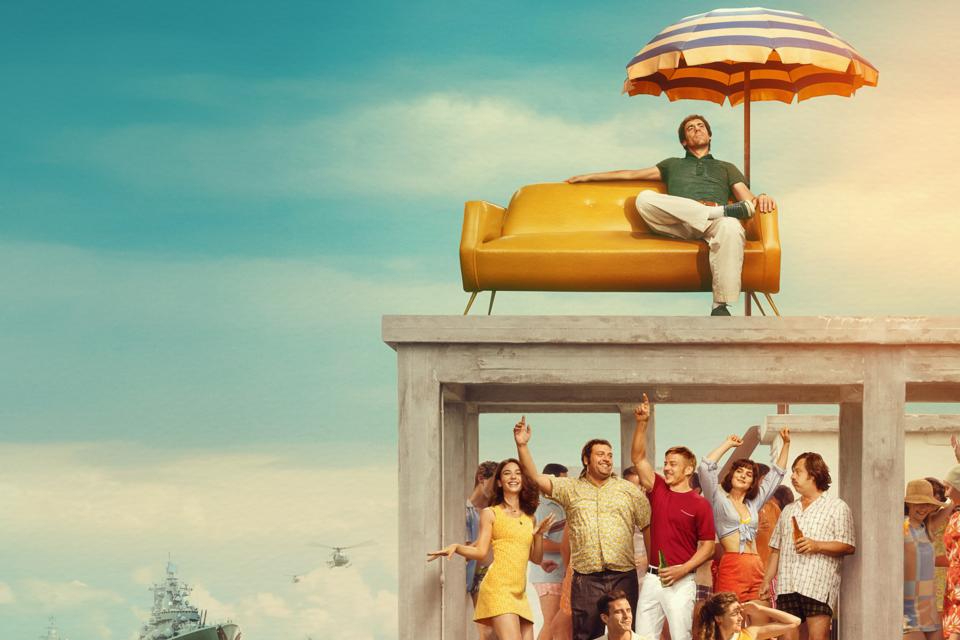
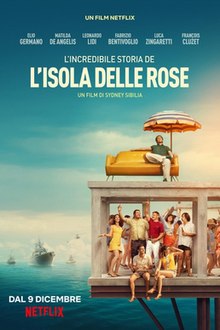








Hi, Janet,
What a different, entertaining and interesting departure from your usual “travelogue” contributions!
As a Film buff, I was delighted to see you mention three of my favourite foreign films, and agree completely with your choices.
At the risk of stealing your thunder (as I’m sure it would be the next one on your list – but just to make sure!) I trust that your next list will include one of the funniest but saddest Italian Films ever – “La Vita e Bella” (“It’s a Beautiful Life”) made by, and starring, the brilliant Roberto Benigni. (He has been described as “a kind of manic cross between Woody Allen and Jim Carrey; he creates the kind of tragi-comic hero you can’t help but end up rooting for”).
As another Review put it: “This magnificent film gives us a glimpse of the Holocaust, but it is really about love, and the indomitability of humanity even in the midst of inhumanity”
It certainly deserved the three Oscars which it won, and the scenes of Arrezzo (and other locations in Tuscany) are beautiful.
However, a word of warning (if any of your readers haven’t already seen it, and are tempted to watch it on DVD) – the first half of the film is Italian Comedy at its best – delightful and hilarious. The second half could not provide a starker contrast – harrowing in the extreme; and the laughter which the first half produced, was equalled in amount and volume by the tears which the second half of this unforgettable film produces. I defy anyone to watch it without being moved to those two extremes of emotion!.
And thinking of poignant films, although French rather than Italian, the similarity of the films you mention with the delightful “Les Parapluies de Cherbourg” (starring the impossibly beautiful Catherine Deneuve) is so striking that I would forgive you for including “Les Parapluies” in your overview of poignant and memorable post-War Italian films!
Thank you again
John
LikeLiked by 1 person
John – your comments are so welcome! I agree with you whole-heartedly. La Vita e Bella is a brilliant film. Funnily enough I was talking to Lucy about ‘Les Parapluies de Cherbourg’ just the other day – also a wonderful film. If you haven’t seen Divorce Italian Style do please watch it – hilarious and quite brilliant. Thank you – as always for your lovely comments – J xxxxx
LikeLike
I agree with everything said about La Vita e Bella, it has everything, pathos, humour and stark despair but leaves you moved and hopeful. If you’re making another list I’d like to include La Strada, La Terre Trema, and Rome Citta Aperta, the last one being a truly brilliant film. I was brought up in the era of neo-Italian films with parents who never missed one if they could find it and later I used to catch up with the films at art cinemas when I moved to London. I still love meeting someone who has never seen Bicycle Thieves and I can sit them down and show them the video, giving me a chance to re-watch and cry once more.
LikeLiked by 1 person
Thank you for your comments – yes Roma Citta Aperta is a wonderful film. I think I’ll have to dedicate a whole article to Fellini as well!!! I don’t know La Terra Trema – I’ll look out for that. J
LikeLike
Lovely post. Il Postino and Cinema Paradiso are on my top twenty movies list. Shall look out for the other two. Xx
LikeLiked by 1 person
Also Il Gattopardo is quite wonderful – 1963 – with Burt Lancaster – I’ll be writing about that soon!
LikeLike